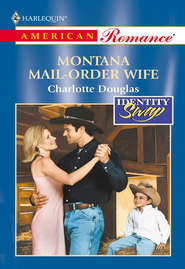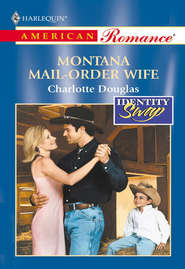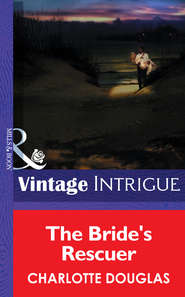По всем вопросам обращайтесь на: info@litportal.ru
(©) 2003-2025.
✖
Montana Secrets
Автор
Год написания книги
2018
Настройки чтения
Размер шрифта
Высота строк
Поля
“Marc tells me you graduate from college next June,” Ryan said. “What will you do then?”
“Teach. I’ll be interning in the fall.”
“Will you stay in Montana?”
“I hope to get a job at the high school here in town.”
“That’s a surprise.”
“Why?” She drew back and gazed at him.
“I figured you had the wanderlust, like Marc. The only reason he joined the Marines was to travel.”
“But as soon as he’s seen the world,” Cat explained, “he’s heading back to help Dad run the ranch. For Marc, Montana will always be home.”
“And you don’t want to travel?”
“I’m a homebody. I have everything I need right here.”
Except you, she thought.
“What will you teach? Elementary school?”
She shook her head, pleased at his interest. “High school history.”
Ryan groaned. “I hated history in high school.”
“Then you didn’t have the right teacher.”
His killer grin returned. “If my teacher had looked anything like you, I’m sure I would have enjoyed the class a whole lot more.”
Her cheeks heated at his compliment, a reaction she couldn’t control, one that she’d inherited from her mother and that caused her endless embarrassment.
“My old history teacher made us memorize long lists of people, places and dates,” Ryan said. “Why did you choose such a boring subject?”
“But it isn’t!”
He cocked an eyebrow skeptically. “I’ll need evidence before I’ll believe that claim.”
She studied his face, wondering if he’d reverted to teasing her, but his expression seemed serious.
“History is much more than people, places and dates,” she said. “I think the most important lesson we can learn from history is how choices always have consequences, whether those choices are made by nations or individuals.”
“The old ‘those who don’t remember history are doomed to repeat it’ theory?”
“Something like that.” She glanced at him sharply, still concerned that he was making fun of her, but his eyes revealed nothing but interest. “Students need to understand the importance of cause and effect, to realize people have control over their lives, that history isn’t events that happened at random. It’s the result of previous decisions.”
Ryan chuckled, and her heart sank. He was making fun of her.
“What’s so funny?” she demanded.
“Not funny. Amazing. All this time I thought you didn’t care about anything but horses. And here you are, a philosopher.”
She scowled. “You make me sound ancient and stuffy.”
He leaned back and considered her with a look that made her pulse race. His magnificent hazel eyes deepened to a hue more green than brown. “Not stuffy or ancient. Something much, much better.”
Flustered by the innuendo in his words, she sought escape from his intense scrutiny. “Well, this room is definitely stuffy. Can we get some fresh air?”
“Sure.”
He twirled her slowly toward the door where a cool breeze entered and alleviated the stifling heat that smothered the dance floor. When he released her, she felt suddenly bereft, until he placed his hand at the small of her back again. He steered her through the crowd that edged the dance floor and out the wide front doors.
The covered dishes had been cleared and the tables disassembled in the park, and the sun had set, leaving the area in darkness except for the faint twinkle from strings of tiny white lights.
Ryan threaded his fingers through hers and led her to a park bench in the shadow of the trees. She sat on one end, and he settled beside her.
Her plan for being alone with him had worked perfectly. She’d had her dance with Ryan, and she should be happy that they were together in this cozy, secluded spot, but all she could think of was his departure in a few days for the other side of the world.
“Why did you join the Marines?” she asked.
He leaned against the back of the bench and stretched his long legs in front of him. “I have no family. The Corps gave me a place to belong.”
“No family, not even aunts or uncles?” She couldn’t imagine life without her brother and father, and she was only now adjusting to her mother’s death. Even though Ingrid had been gone for several years, Cat still missed her every day.
Ryan shook his head. “No family that I know. I was abandoned on the steps of a Chicago church shortly after I was born. Father Ryan at Saint Christopher’s found me. That’s how I got my name.”
He’d never talked about his childhood before, and his story fascinated her. “You were raised by a priest?”
Ryan laughed, a pleasant, throaty sound that echoed in the emptiness of the park. “I’d probably have turned out better if I had been. I spent the first ten years of my life in an orphanage, then bounced from one foster home to another—when I wasn’t in juvenile detention.”
Her heart went out to the child he’d been, orphaned, abandoned and alone. “Somehow I can’t picture you as a juvenile delinquent.”
“I was one tough, angry little kid, and I took out my frustrations and unhappiness on everyone and everything around me.”
“But you’re not like that now. What changed you?”
“Margaret Sweeney.”
Cat’s heart sank. There was another woman in his life after all. “How did she change you?”
“When I was twelve and already had a rap sheet as long as my arm, I went along with some older boys when they stole a car. They wrecked the car, and the cops caught us. When I went before the juvenile judge, she gave me a choice. I could go to live with Margaret Sweeney as my foster mother or be sent to the strictest, most dreaded juvenile facility in Chicago.”
Cat was relieved to learn the woman was no rival for her. “And you opted for Margaret Sweeney?”
He nodded. “I’m a walking example of your choices-and-consequences theory. If I hadn’t made that choice, I’d either be a lifer or dead by now. Instead, I have my whole life and a great career ahead of me.”
“What was so special about Margaret Sweeney?”











